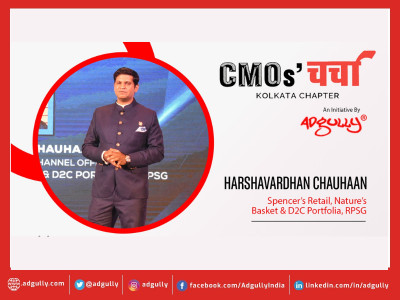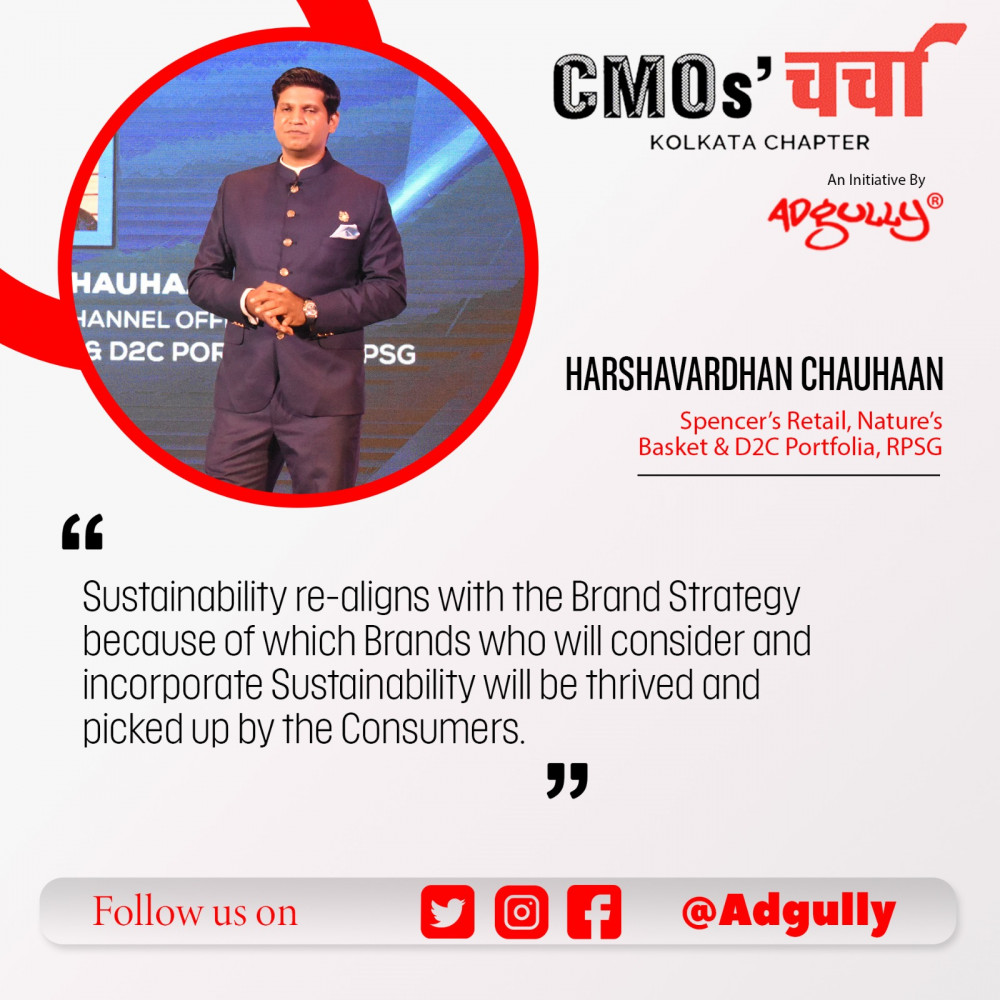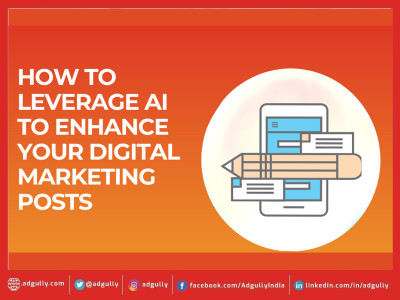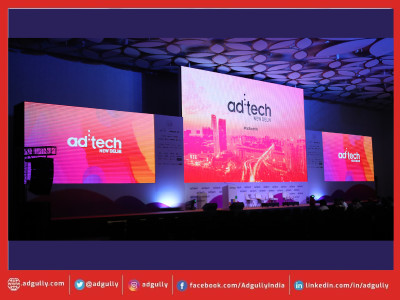The future of retail sustainability is truly phygital: Harshavardhan Chauhaan
Adgully’s CMOs’ Charcha - Kolkata Chapter, held on June 30, 2023, brought together a diverse group of industry leaders, who discussed the great potential that the East markets offer, the changing expectations and aspirations of consumers, brands’ strategy to win over complex and somewhat remote markets, and much more.
Delivering his special keynote address, Harshavardhan Chauhaan, a leading industry expert in retail, e-commerce, and D2C brands, explored the concept of ‘phygital’ retail and its role in shaping the future of retail sustainability.
Retail globally is undergoing unprecedented times. Economies across the world are witnessing increasing consumer consumption levels, directly impacting the sustainability of communities, society, and the planet. The next decade will be crucial for brands to survive the test of consumers, as sustainability becomes a key determinant of their success.
The Phygital Revolution
The term “phygital” is a portmanteau of physical and digital, representing the convergence of these two realms in the retail industry. Consumers no longer differentiate between online and offline experiences; instead, they expect brands to seamlessly operate across channels, providing a consistent and personalized shopping journey. This transformation presents an opportunity for brands to embed sustainability into every aspect of their operations and engage consumers in a meaningful and eco-conscious manner.
Sustainability at the heart of strategy
Chauhaan emphasised on the critical role of sustainability in shaping retail strategy. He believed that sustainability should not be treated as an add-on or marketing gimmick, but should be deeply embedded in a brand’s DNA. Companies must align their vision, mission, and values with sustainable practices to create a lasting impact on both the environment and society.
To achieve this, brands need to adopt innovative and catchy acronyms that reflect their commitment to retail sustainability. Concepts such as G.R.E.E.N. (Generating Responsibility by Embracing Eco-conscious Norms) and S.T.E.W.A.R.D. (Sustainable Transformations Empowering World through Action, Responsibility, and Development) can serve as guiding principles to drive sustainable initiatives across all business functions.
Phygital sustainability in action
Phygital retail enables brands to leverage technology to create sustainable experiences for consumers. For instance, using augmented reality (AR) and virtual reality (VR) technologies, brands can offer virtual try-on experiences, reducing the need for physical prototypes and minimizing wastage. By integrating these digital solutions into their sustainability strategies, brands can enhance customer engagement while reducing their environmental impact.
Furthermore, by leveraging data analytics and artificial intelligence (AI), brands can optimise supply chain processes, reduce carbon emissions, and minimise waste. Smart sensors and Internet of Things (IoT) devices can monitor energy consumption, track inventory levels, and streamline logistics, thereby promoting efficiency and sustainability in retail operations.
Collaboration and Partnerships
Chauhaan emphasised that achieving true sustainability requires collaboration across the retail ecosystem. Brands, suppliers, consumers, and governments must join forces to drive sustainable practices. Initiatives such as R.E.T.A.I.L. (Revolutionizing Ecosystem Through Alliances for Inclusive and Lasting Sustainability) promote partnerships between retailers and suppliers, facilitating the adoption of sustainable materials, responsible sourcing, and ethical labour practices.
Additionally, brands can partner with non-profit organisations and NGOs to implement social and environmental initiatives. Collaborative efforts, such as the P.L.A.N.E.T (Promoting Local Action for Nurturing Environmental Transformation) project, can engage local communities, foster eco-conscious behaviour, and create a positive impact on the environment.
The Role of Leadership
CEOs have a critical role to play in driving sustainability in retail. They must ensure that sustainability is not just a checkbox exercise, but ingrained in the core values of the organisation. As Chauhaan put it, “CEOs will be expected to not just ensure that their bottomlines are green, but whether they are truly doing good practice ‘green’ in strategy and everyday operations.” This calls for a cultural shift within organizations, where sustainability becomes a shared responsibility across all levels and departments.
The future of retail sustainability lies in embracing the concept of phygital retail, where physical and digital channels merge seamlessly to deliver personalised, engaging, and eco-conscious experiences. Chauhaan’s visionary leadership underscores the importance of integrating sustainability into retail strategies, operations, and everyday practices. By adopting innovative acronyms, leveraging technology, fostering collaboration, and demonstrating strong leadership, brands can contribute to a more sustainable future, ensuring the well-being of communities, society, and the planet. As the retail industry evolves, sustainability must remain at the heart of its transformation, driving positive change and creating lasting value for generations to come.
These are edited excerpts of Harshavardhan Chauhaan’s keynote address. For the complete address, watch below:



















Share
Facebook
YouTube
Tweet
Twitter
LinkedIn